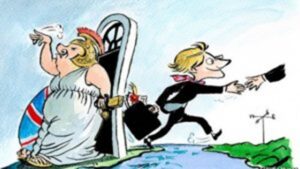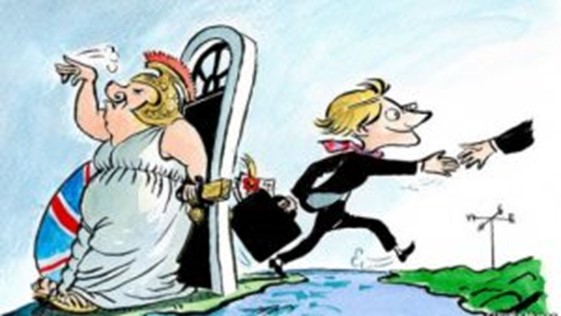The British Diaspora
Given the supremacy of the British Empire for much of the Age of Discovery, the British diaspora is widely dispersed throughout the world. The United Kingdom retains some control of small regions throughout the world, in places known as British Overseas Territories. Major former colonies such as Australia, New Zealand and Canada are home to pre-dominantly ethnic British populations. New Zealand’s population is 59% of British descent, Australia’s 46% and Canada’s 31%. The United States’ population is 12%. Other former colonies in the Caribbean also have large British populations. The modern British diaspora follows slightly different patterns. Australia has the largest population of 1.3 million, followed by Spain (761,000), the United States (678,000), Canada (603,000), Ireland (291,000), New Zealand (215,000), South Africa (212,000), France (200,000), Germany (115,000) and Portugal (60,000). The distribution is generally divided between large, English-speaking former colonies and large, nearby European countries.
When discussing the British diaspora, it is important to mention its immense historical colonial presence throughout the world. The British Empire, at its height, controlled nearly a quarter of the world’s total land area. This caused the British population to become widely dispersed throughout its various colonial holdings. Indeed, the majority of major British population centres today are former colonies, particularly those with small and often decimated native populations such as Canada, Australia and New Zealand. These countries bear a number of great cultural similarities to the United Kingdom unlike other former colonies such as India, Pakistan and Sri Lanka. This is why more recent immigration occurs in larger numbers to these countries.

Cartoon by The Economist
The British population of Australia dates back to its annexation at the end of the 18th Century. Australia, in its early years as a British subject, functioned as a penal colony, with mainly English criminals being sent there. While early British settlers in Australia came from all over the country, they were predominantly English. Indeed, in the first century of Australia’s colonial existence, nearly three quarters of the population were British. The British population continued to grow over the centuries, with the gold rush in Victoria providing impetus for this. Even after Australia’s independence from the United Kingdom, relations between the two countries have remained strong and immigration to Australia from the UK was obviously exempt from the strict restrictions imposed by the ‘White Australia’ policy. As a result, as the historical British population’s identity withered away and became replaced by a new Australian identity, renewed British immigration continued. Britons remain the largest immigrant population in the country today, a number which is in addition to the substantial amount of the population claiming British ancestry. The British diaspora’s cultural imprint in Australia is permanent and constant. The same logic applies for the nearby New Zealand, of which nearly 60% of the population is of British descent. British settlement in New Zealand has occurred since the annexation of the country in 1788. Many arrived initially due to the booming whaling industry. Following the consolidation of British power over the native Maori tribes in the mid-19th Century, British immigration increased significantly, with major pull factors emerging with the Otago Gold Rush amongst others.
More recent British immigration populations in countries such as Spain and France differ significantly from those in former colonial territories. Spain boasts the second-largest British population in the world, the majority of which is very recent. British immigration to Spain accelerated rapidly at the end of the 20th Century as Britain joined the European Union. The country is highly popular amongst middle and upper-middle class immigrants, many of whom retire there due to the better climate. Despite the large numbers of British settlers, the population is known for its poor integration. Many Britons live in resort communities, rarely interacting with Spanish nationals or culture. This has caused some cultural tension. The same applies to France, where the majority of Britons either settle in Paris or the southeastern region of the country.
The British diaspora is amongst the most widespread and impactful in the world. One only needs to look at the prevalence of the English language throughout the world, even in non-English speaking countries to ascertain this. Britain’s cultural impact upon the world, the majority of which occurred during the height of the country’s Empire. Indeed, the British Diaspora is, without question, one of the most impactful and prevalent on the planet.
main image: British Columbia’s capital Victoria, self identifies as being “more English than the English” © Tourism Victoria




